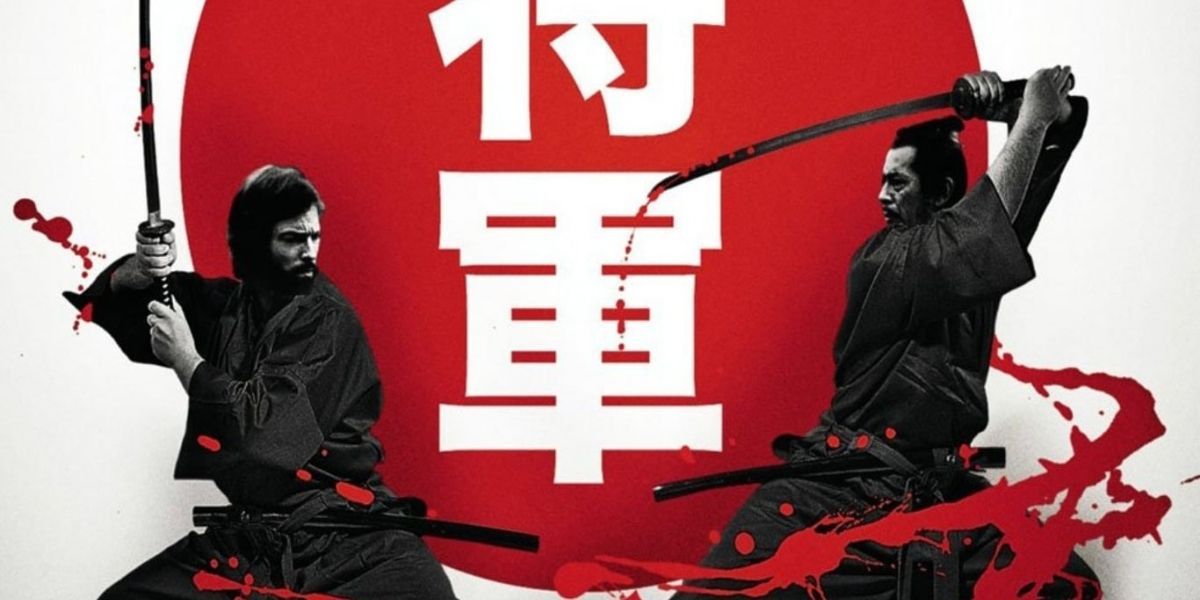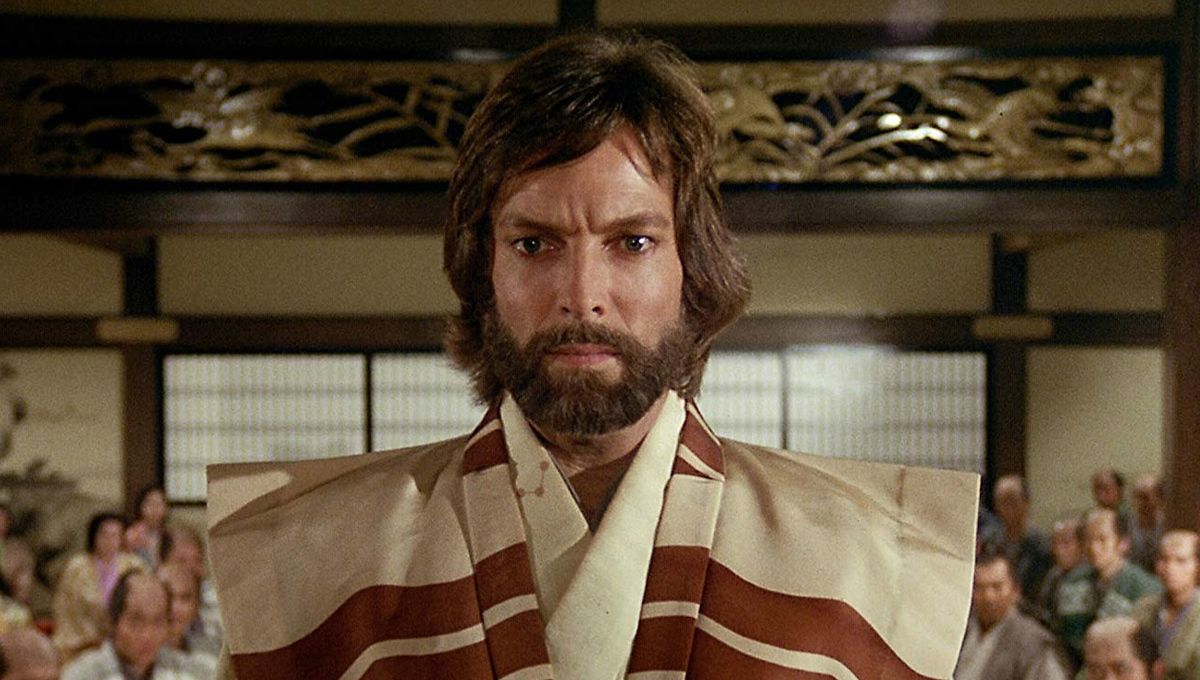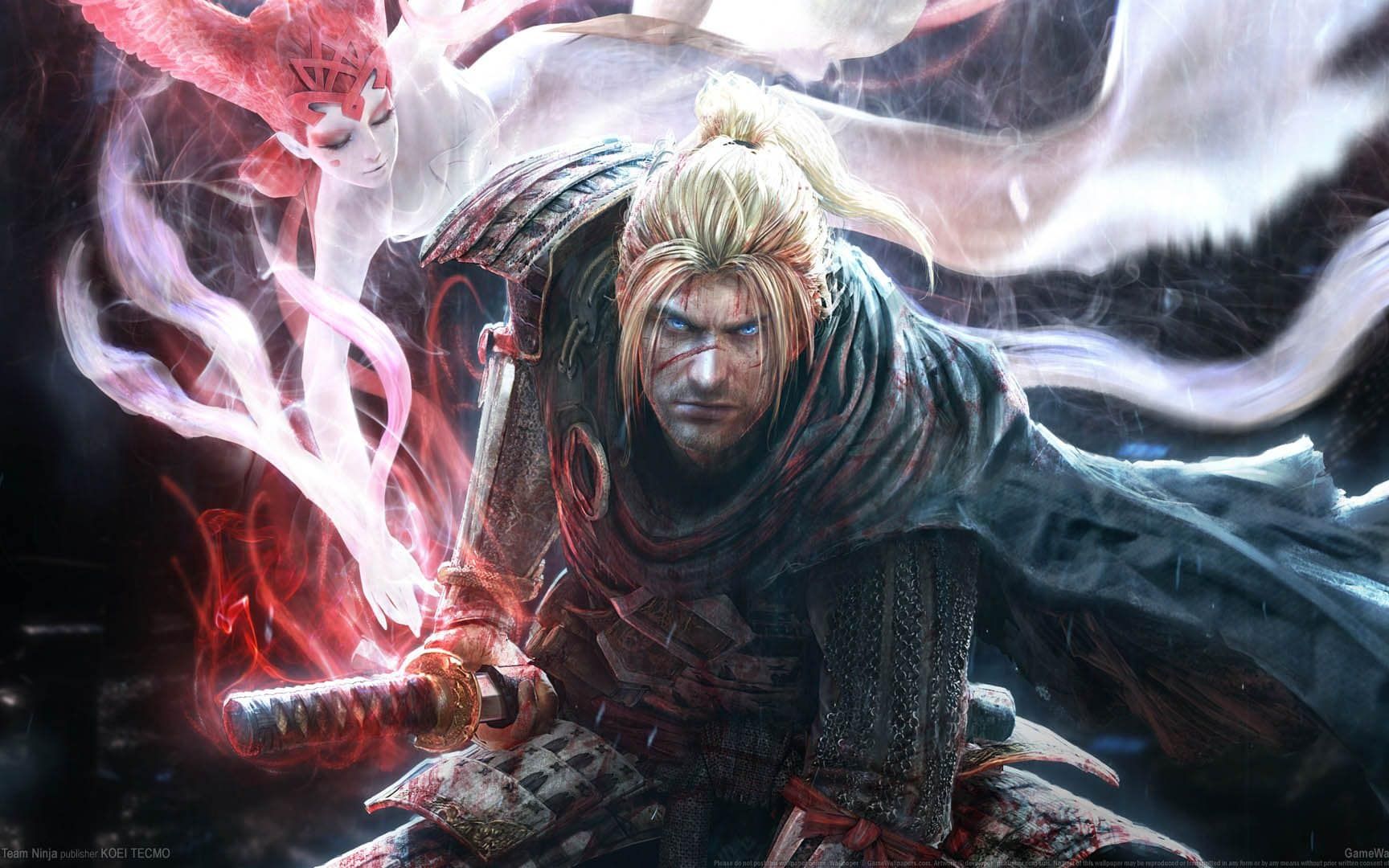FX's upcoming miniseries Shōgun is arguably the most overlooked announcement from Disney's Investor Day. Revealed with only a title card and some production information, the project hasn't yet offered a release date, much less a cast, but what it does have is a huge legacy to live up to. Not only because of James Clavell's novel, but also a blockbuster '80s miniseries that impacted the United States' attitude towards Japanese culture for decades to come.
James Clavell's Shōgun is a hefty book and, despite the intricacy of its plot, it became a surprise bestseller after the launch of its miniseries. Chronologically the first part of Clavell's "Asian Saga," the story is a thinly fictionalized version of history. Many of its primary characters are direct analogues: Ship's navigator John Blackthorne (Richard Chamberlain) is William Adams, both known better as Anjin-san in their new country. The titular shōgun, Toranaga (Toshiro Mifune), is Tokugawa Ieyasu, one of Japan's most important leaders and an ally of the equally famous Oda Nobunaga.
The novel mostly follows Blackthorne's attempts to understand the new world he's been thrust into, from distrust and fear as his fellow sailors are starved and sometimes tortured, and rising to a respected place at Lord Toranaga's own side. The ever-patient Lady Mariko is assigned to help him -- and the audience -- learn the intricacies of Japan's language and culture while Toranaga's plans to ascend as Shōgun grinds ceaselessly behind Blackthorne's struggles.
Though fiction, the novel takes a scholarly but not dry view towards its educational diversion, a technique that slows the plot without disrupting a reader's attention. Clavell's history as a Japanese prisoner of war distills into deep respect of his former captors, and historians not only admired the general accuracy of his depictions, but used his fiction to educate. The miniseries was equally intricate, being a massive production that pushed the boundaries of television with its violence and sexuality.
The miniseries was greenlit after the enormous cultural response to Roots in 1977. NBC wanted something to compete with the award-winning juggernaut, realizing there was an audience for something with more plot and spectacle. Production was mostly Japanese, filmed on location, and an English narration that helped during its deliberately untranslated segments was provided by none other than Orson Welles.
The network found enough success in Shōgun to earn a slate of nominations and wins and, more importantly for NBC, the miniseries' huge viewer ratings paved the way for future blockbuster minis like North and South and Lonesome Dove. And though the citations for the claim come from a making-of documentary and face dispute, there's still a belief that the miniseries jumpstarted the popularity of sushi restaurants across the United States.
Meanwhile, Shōgun's impact lingers quietly in the subconscious of game designers and film students. It helped to bring a Japanophile craze to the country that never really ended, a fascination with the story's truer bits of history. Though Shōgun wasn't Toshiro Mifune's introduction to Western cinema, it's arguably the moment his legend became enshrined within American audiences. And Tom Cruise's Meiji-era film The Last Samurai can't escape Clavell's shadow. Its historical accuracy is frequently compared to Shōgun and summarily disregarded, though ironically it became a hit in Japan in contrast to Shōgun's chillier reception.
There's an odder tie to Shōgun in the world of video games. Team Ninja released Nioh in 2017 to a response favorable enough to warrant becoming a franchise. Though the game's story has its roots in an unfinished screenplay by Akira Kurosawa, the game's liberal application of history pulls from Shōgun's shared well. The protagonist is William Adams, Anjin-san himself, thrust into a world of conspiracy and strange magic. Team Ninja happily admitted to taking inspiration from Shōgun and questions about the connection littered Reddit and Steam communities before being redirected towards more historical origins.
That's a lot for the upcoming remake to deal with. And the reboot has already faced a few hurdles of its own. The new Shōgun entered pre-production in 2017, but its filming schedule promptly hit a wall with the 2020 Tokyo Summer Olympics and, by extension, COVID-19 delays. Writers have also been replaced, with new scripts ordered to ensure the production lived up to the legacy set by its predecessor. With all that on the table, it's unclear how well the final results will succeed. But if a shipwrecked pilot can thrive in his new world despite the odds, perhaps FX will win some of Anjin-san's unlikely success for themselves.



